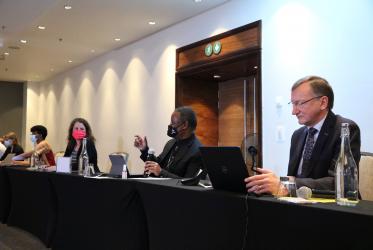Displaying 1 - 14 of 14
01 February 2024
Churches should use their voice on climate change
26 February 2020
WCC pressing ahead with disarmament work
28 August 2019
Trying to do good for the world
18 December 2017
Religious leaders urge a ban on fully autonomous weapons
02 April 2015
WCC mourns the death of Leopoldo Niilus
10 February 2015
Momentum builds for ban on nuclear weapons
16 December 2014










